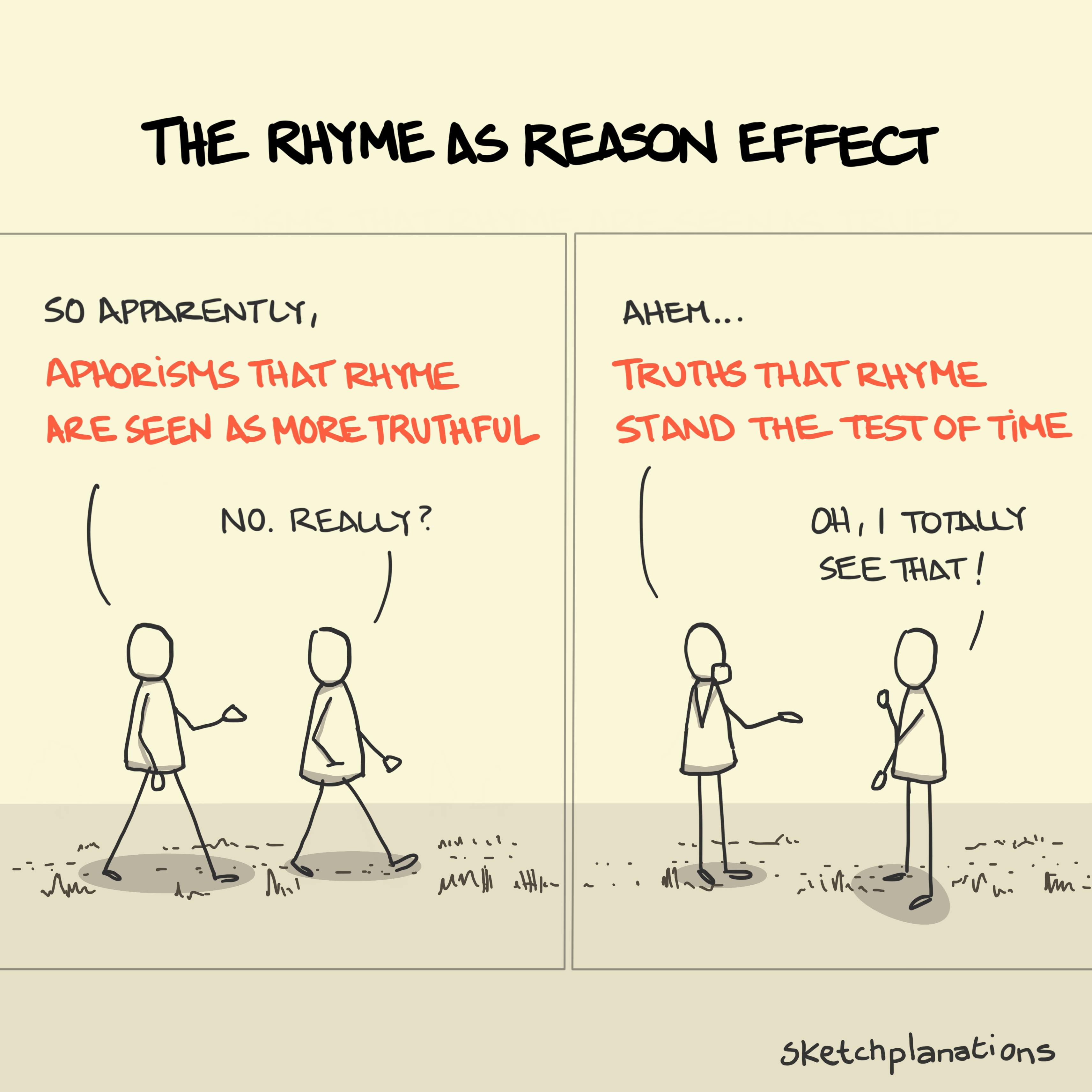The Rhyme As Reason Effect

👇 Get new sketches each week
The Rhyme As Reason Effect suggests that we're more likely to consider something as accurate or truthful when it rhymes. In a lovely study that asked people to consider the accuracy of both rhyming and non-rhyming aphorisms, "Woes unite foes," or "What sobriety conceals, alcohol reveals," for example, were considered more accurate than "Woes unite enemies," or "What sobriety conceals, alcohol unmasks."
A classic example outside of old sayings is OJ Simpson's trial where the defense attorney memorably noted "If the gloves don't fit, you must acquit!"
You can read the study in the delightfully titled paper, Birds of a feather flock conjointly: Rhyme as Reason in Aphorisms (pdf ), by Matthew McGlone and Jessica Tofighbakhsh.
In a related note I was always curious how "Beer before wine, you'll feel fine," tallied up with what I heard in the US: "Beer before liquor, never been sicker," or even "Grape or grain but never the twain." It turns out from a neat 2019 study that, whichever way round you rhyme them, they have no effect on your hangover despite how persuasive the Rhyme As Reason effect may be — even after a few beers.

